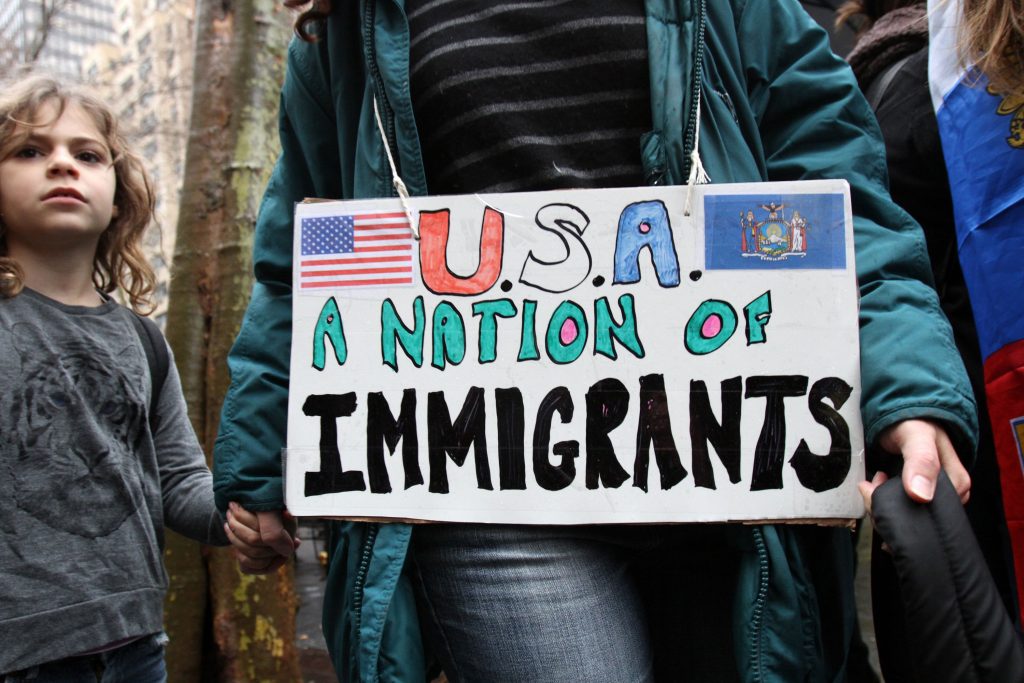We begin this new year as we do every year, with hopes for a brighter tomorrow.
And as we always do, Catholics in the United States begin this new year with the recognition of National Migration Week.
For most of the past 25 years, we have celebrated this week in the hopes that this year, finally, there will be reform of our immigration system and a compassionate solution for those who are undocumented and forced to live in the shadows of our society.
Year after year, unfortunately, our dream of immigration reform has been deferred.
This year, of course, our frustration is mixed with a lot of fear, uncertainty and anger because we have elected a president who campaigned on harsh rhetoric about foreigners and promises to deport millions of undocumented immigrants.
I find encouragement in reading the history of Caesar Chávez and the farmworkers’ movement and the history of the black civil rights movement led by Rev. Martin Luther King Jr., whose national holiday we celebrate next week.
The spiritual heart of the civil rights movement, as we know, was rooted in the witness of Jesus and his teachings of love, and especially love for our enemies.
And I have been thinking about a New Testament verse that became a kind of inspiration for the movement: “Keep your eyes on the prize.”
I think this is wisdom for this moment in our own struggle for the rights and dignity of our brothers and sisters who are undocumented.
We need to keep our eyes on the prize.
We cannot allow our judgments to be clouded by our frustrations and fears. We cannot allow our commitments to be co-opted because of our anger. We cannot allow the Church or our Christian witness to be reduced to just one more partisan voice on this issue.
It is sad, but we have to keep reminding ourselves that both of our political parties are exploiting the immigration issue for their own purposes. We saw this in the election and we have seen this pattern continue since.
As Christians, as the Church, we cannot allow ourselves to be caught up in this, taking sides, compromising the clarity of our witness. Our struggle is beyond the ambitions of individual politicians or one political party or another.
Our cause is the noble cause of human dignity. We are struggling for a goal that is beyond politics — the realization that all men and women are children of God, that their lives are sacred — no matter what the color of their skin or their country of origin or how they came to this country. A person is a still a person even though he is “without papers.”
This is the prize — dignity, justice and integration for those who have come to this country to share their gifts, to make a new life for their families, and to build this country.
We have been through periods like this before in American history.
We are a nation of immigrants, it is true. But immigration to this country has never been easy, and new nationalities and ethnic groups have seldom been welcomed with open arms.
The truth is that with each new wave of immigration has come suspicion, resentment and backlash. Think about the Irish, the Italians, the Japanese. It is no different with today’s immigrants.
Now is the time for the Church to lead. Our Lord calls us to be peacemakers. We should take that task seriously. As Christians we need to be bridge-builders, “uniters” not “dividers.”
Our politics today seem to reflect that we are living in our own separate worlds, unable to relate to those who are not like us and unable to talk to those who see the world differently. In our public discourse, we seem to be talking past each other, not respecting each other enough to even listen to what the “other side” has to say.
All of this has got to stop. We are tearing this great country apart by pride and partisanship, by our inability to get beyond our perceived self-interests. We need to extend goodwill even to those who disagree with us. We all need to do less talking and more listening.
I share the deep concerns about the incoming Administration and Congress. But we need to find a way to begin a dialogue. We need to keep our eyes on the prize.
The Rev. King reminds us that Jesus calls us to love our enemies. And he adds: “And I’m happy that he didn’t say, ‘Like your enemies,’ because there are some people that I find it pretty difficult to like.”
His point is that it is hard to like people when they call you names and threaten injustice against you. But Jesus calls us to love them anyway and to find creative ways to overcome their prejudices and fears.
So as we pray again at the start of this New Year, let us pray again that this year immigration reform will not be a dream deferred.
Please pray for me and know that I am praying for you. And may our Blessed Mother watch over our country and help make us one nation under God.

